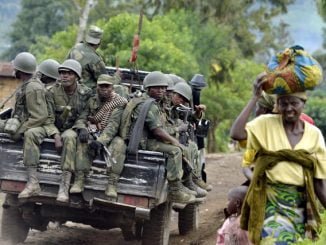
Luanda, Angola | URN | President Yoweri Kaguta Museveni and his Rwandan counterpart Paul Kagame will on Sunday, February 2, 2020, meet in Luanda, the Angolan capital for a second attempt at talks to resolve the dispute between Uganda and Rwanda.
The Presidents, whose advance teams from either country have already reached Angola, will review the August 2019 peace pact signed by the duo in the same country. It will also be the second time the two presidents have met since last August.
According to the Angola Ministry of Foreign Affairs, President João Lourenço of Angola has invited the two for talks. They will be joined by Felix Félix Tshisekedi of the Democratic Republic of Congo.
DRC has been the overseer of the implementation of the Luanda MOU.
Uganda’s permanent representative to the United Nations Ambassador Adonia Ayebare twitted on Saturday morning that he was “In Angola to attend this important meeting.”
Rwanda Minister of State for East African Affairs Ambassador Olivier Nduhungirehe said “with good faith and resolve, we can end this crisis.”
This month effectively makes it a year since the dispute came to the fore with Rwanda closing its Gatuna border with Uganda. Kigali accused Kampala of incarcerating her citizens and supporting armed groups that aimed at overthrowing the administration there.
Read Also: Partners or Competitors? The road to East African integration
Uganda said Rwanda had infiltrated her security agencies. Two meetings held between government officials – one in Kigali in September and another in Kampala last December – were not enough to resolve the dispute.
On Wednesday, Kagame addressed diplomats in Kigali telling them that “he was not about to tell his citizens to return to Uganda because he has no control over their while in Uganda.”
As the dispute raged on, trade between the two countries was the biggest victim. Uganda lost up to USD 200m (Shs 735bn) in potential earnings if the border was open. Kigali lost some money too but not to the extent of Uganda.



